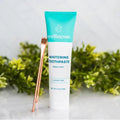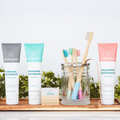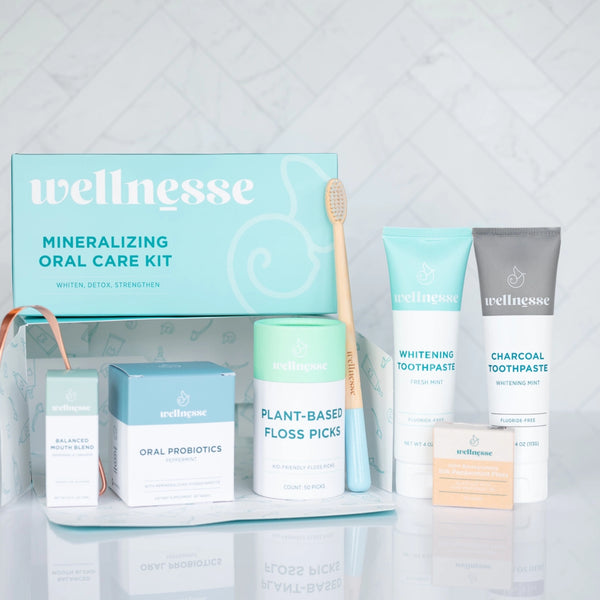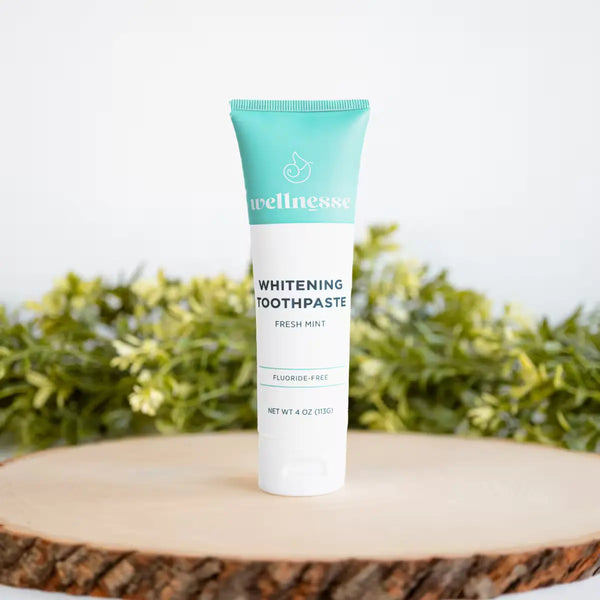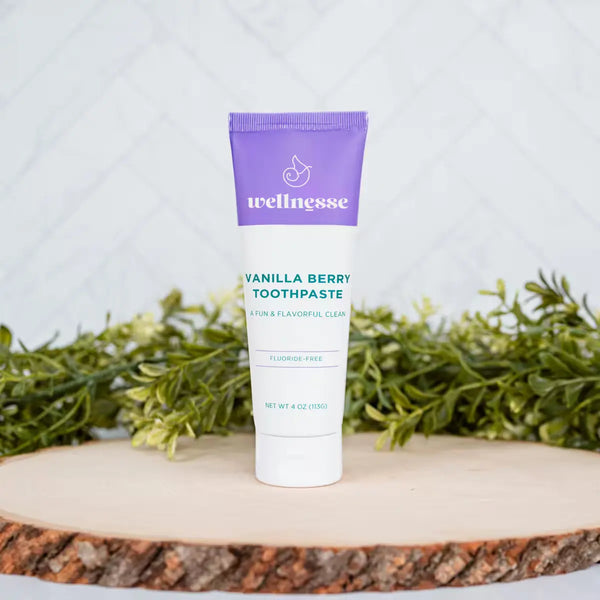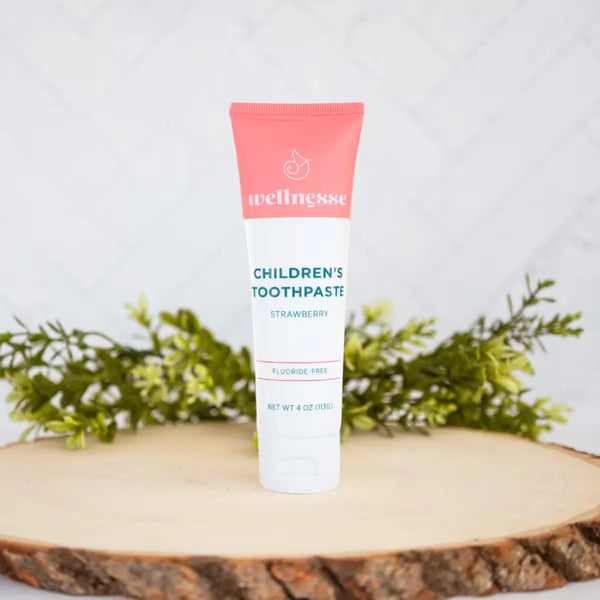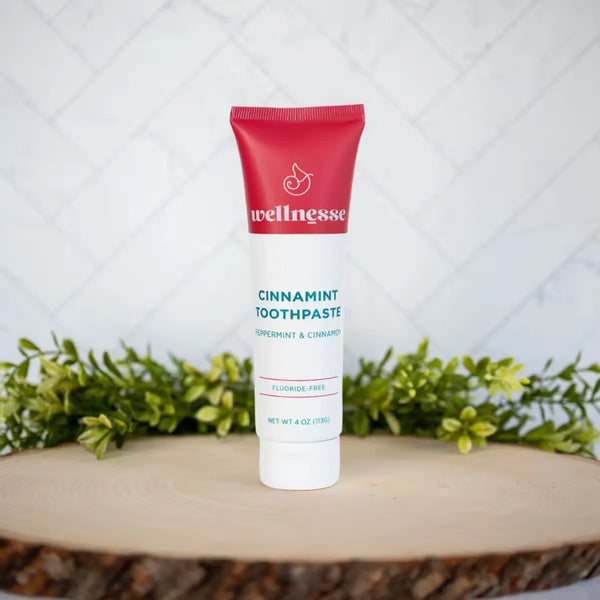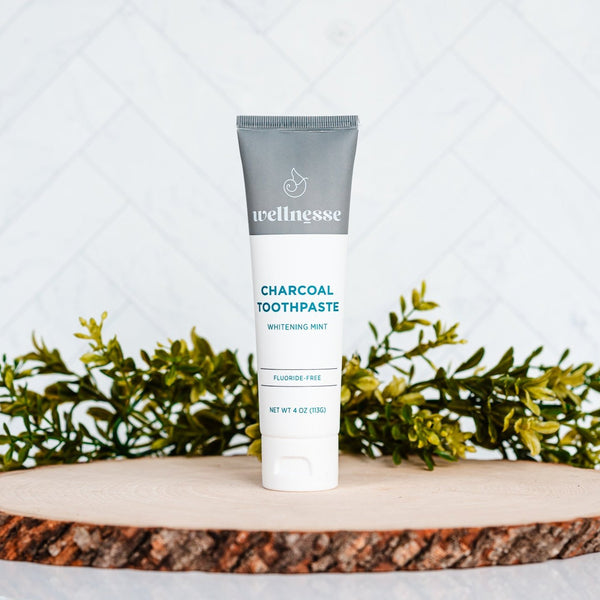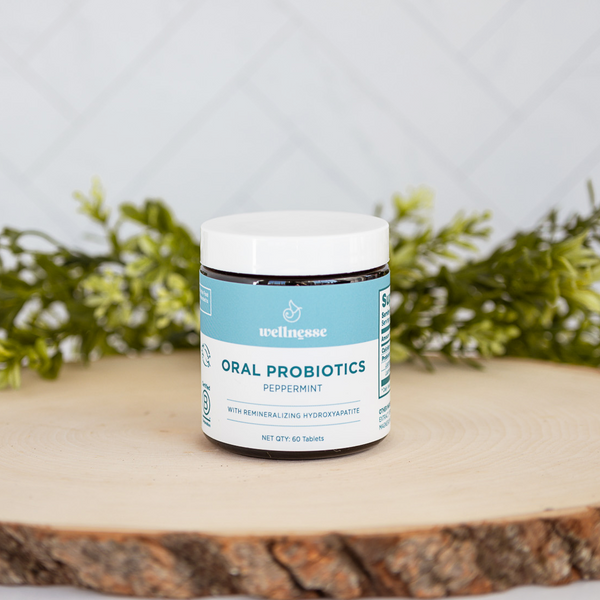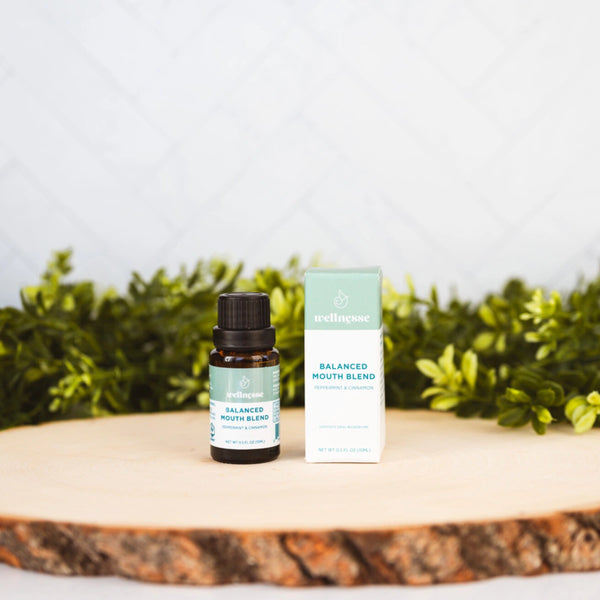We all know the importance of cleaning our teeth daily. But what about our tongues? Most of us are familiar with the unpleasant filmy feeling that can coat our tongues when we first wake up in the morning. This film results from the toxins and bacteria that build up in our mouths while we sleep. Although a good brush and flossing help a bit, our tongues often go neglected when we are caring for our oral health.
Fortunately, a simple solution to this issue has been around for thousands of years: Tongue scraping.
Whether you're new to tongue scraping or a pro, you'll want to get your hands on our Wellnesse Tongue Scraper, made from pure, antimicrobial copper!
What Is Tongue Scraping?
Tongue scraping is the simple technique of using a metal tool to gently scrape the surface of the tongue. Scraping removes the bacteria, toxins, and dead cells that build up on your tongue overnight, improving your breath and protecting your teeth. Just scrape, spit, and rinse - it's that simple!
The concept comes from the holistic healing tradition of Ayurveda and has been utilized in India for its health benefits for thousands of years. It has taken some time, but the Western world is also beginning to wake up to the benefits of tongue scraping. As we learn more about the importance of good oral hygiene for our overall health, we're all realizing that taking care of our mouths (and tongues!) should be a priority.
What Are the Benefits of Tongue Scraping?
Like our guts, our mouths are a carefully balanced microbiome that includes billions of different types of bacteria. While there is such a thing as harmless and even good bacteria, others cause bad breath, tooth decay, and gum disease. Removing these harmful bacteria off the tongue daily helps keep our mouths fresh and our teeth healthy.
Daily brushing and flossing are vital to keeping on top of bacteria and preventing them from causing damage. But brushing and flossing don't address the bacteria at the back of the tongue, an area that is hard to reach without a specially designed tool.
Adding tongue scraping into your morning routine, therefore, has several benefits. Here are four of the most significant ones:
- Preventing Bad Breath
Bad breath (halitosis) results from the build-up of bad bacteria in our mouths. It's not your mouth, but the bacteria that produce odor. So, it stands to reason that removing these bacteria would significantly improve bad breath.
Research supports this idea. A study published in 2019 in the Journal of Breath Research looked at the effectiveness of tongue scraping on halitosis. The authors found that using mouthwash made no measurable difference, but tongue scraping did, as long as it was done regularly.
- Reducing Gum Disease
Brushing your teeth is essential to remove bacteria and prevent gum disease. However, there's evidence that using a tongue scraper daily reduces gum disease risk more than brushing alone.
In a 2018 study, researchers compared two groups with gum disease. Both groups received instruction on proper oral hygiene, but one group also received a tongue scraper, and the other did not. After just a week, both groups saw a reduction in the symptoms of gum disease (as a result of their improved routines). However, the group using the tongue scraper saw more significant improvement than those just brushing.
- Removing Tongue Coating
Regardless of whether your bad breath is detectable by other people, that filmy coating on your tongue makes you feel self-conscious and can leave a bad taste in your mouth (literally).
Daily scraping with a tongue scraper provides immediate relief from this unpleasant symptom, making your whole mouth fresher. It also removes that strange white color, helping your tongue look and feel healthier.
- Improving the Taste of Food
When your tongue has a coating of bacteria and debris, it gets in the way of your tastebuds, impeding your sense of taste and making it harder to enjoy food.
An older study published in the Journal of Clinical Periodontology found that using a tongue scraper for two weeks significantly improved participants' ability to taste food, especially salt and quinine (which has a bitter flavor).
Being able to taste your food makes meals more enjoyable, but it also benefits your overall wellness. When you can taste the subtle nuances of your food, you are far more likely to be drawn to healthier options (not to mention, you'll be able to tell more quickly if something has gone bad!)
Since the coating on your tongue affects your ability to taste salt, you may find yourself loading up on processed food because you crave the added flavoring. Once you eliminate the coating, you can appreciate the flavors of fresh and healthy home cooking.
In Ayurveda, tongue scraping is also said to boost the agni – the 'digestive fire.' Much of Ayurveda is concerned with the proper digestive tract and gut balance. Our gut health significantly impacts our overall well-being, so anything that can improve your digestion is worth integrating into your daily routine.
How to Tongue Scrape
Tongue scraping only takes a few moments, so adding it to your current oral hygiene routine is easy.
Start by brushing your teeth thoroughly and then flossing. Once your teeth are clean, you can focus on your tongue.
Take your tongue scraper and place the curved end on the back of your tongue, as far back as you can without triggering your gag reflex. Gently but firmly, pull the scraper over your tongue in one long stroke. There's no need to press too hard.
Spit (if necessary), rinse the scraper, and repeat the process five to ten times.
If you are sticking to a proper Ayurvedic oral care routine, you can follow your tongue scraping with some oil pulling or a clean, non-toxic mouth rinse to remove further bacteria.
How Often Should You Scrape Your Tongue?
Like toothbrushing, tongue scraping works best when it is a daily habit. You only need to use your tongue scraper once a day, but if you struggle with bad breath or prefer the extra boost, there's no harm in scraping twice a day.
Most people prefer tongue scraping in the morning after brushing their teeth. It is usually first thing in the morning that we especially notice that unpleasant coating on our tongues. Of course, if you prefer to scrape your tongue in the evening, there's no reason not to.
If you like an extra boost throughout the day, some people implement tongue scraping after meals as a quick refresher and protection against bad breath. (If carrying a tongue scraper around is too much of a hassle, our Oral Probiotics provide a quick, convenient, minty pick-me-up!)
Choosing a Tongue Scraper
In traditional Ayurveda, a tongue scraper comes in copper, gold, silver, tin, or brass. It should have a curved edge and two long handles to fit your tongue's natural shape. The edge shouldn't be sharp – you don't want to cause any injuries!
Although plastic scrapers are also available and cheaper, they are less durable and environmentally friendly than metal. In a world where plastic pollution is an ever-increasing issue, most of us will want to avoid unnecessary plastic use anyway. And, for those of us trying to live a cleaner lifestyle, the toxins in plastics make them something to avoid, especially in our mouths.
Gold and silver scrapers sound luxurious (and expensive). It is unusual to find these for sale nowadays, and those available usually have a steel coating instead of pure gold or silver.
At Wellnesse, we prefer to go the traditional route and opt for pure copper. The ancient Ayurvedic practitioners knew what they were talking about when they recommended this metal for making tongue scrapers. We now know that copper has natural antibacterial properties and is effective at killing bacteria, yeasts, and viruses as it comes into contact with them.
Choosing copper for your tongue scraper means adding the metal's antimicrobial powers to the existing physical benefits of tongue scraping.
Your copper tongue scraper should last for years if looked after properly, making it a low-waste form of oral hygiene. Just rinse with warm water and dry it between uses!
Simple and inexpensive, tongue scraping is a hugely beneficial (and underrated) practice to add to your daily oral care regime. To help you get started, you can grab our beautiful Copper Tongue Scraper alone or as part of a bundle with our other oral care essentials. Shop now!
Resources
Charak Samhita, Dinacharya
Wellnesse, The Benefits of Flossing: 7 Ways It Improves Your Health
Gurpinar, B., Yildirim, G., Kumral, T. L., Akgun, M. F., Sari, H., Tutar, B., & Uyar, Y. (2019). A simple method to reduce halitosis; tongue scraping with probiotics. Journal of breath research, 14(1), 016008.
https://iopscience.iop.org/article/10.1088/1752-7163/ab503e
Acar, B., Berker, E., Tan, Ç., İlarslan, Y. D., Tekçiçek, M., & Tezcan, İ. (2019). Effects of oral prophylaxis including tongue cleaning on halitosis and gingival inflammation in gingivitis patients-a randomized controlled clinical trial. Clinical oral investigations, 23(4), 1829–1836. https://doi.org/10.1007/s00784-018-2617-5
Quirynen, M., Avontroodt, P., Soers, C., Zhao, H., Pauwels, M., & van Steenberghe, D. (2004). Impact of tongue cleansers on microbial load and taste. Journal of clinical periodontology, 31(7), 506–510. https://doi.org/10.1111/j.0303-6979.2004.00507.x
Grass, G., Rensing, C., & Solioz, M. (2011). Metallic copper as an antimicrobial surface. Applied and environmental microbiology, 77(5), 1541–1547. https://doi.org/10.1128/AEM.02766-10
